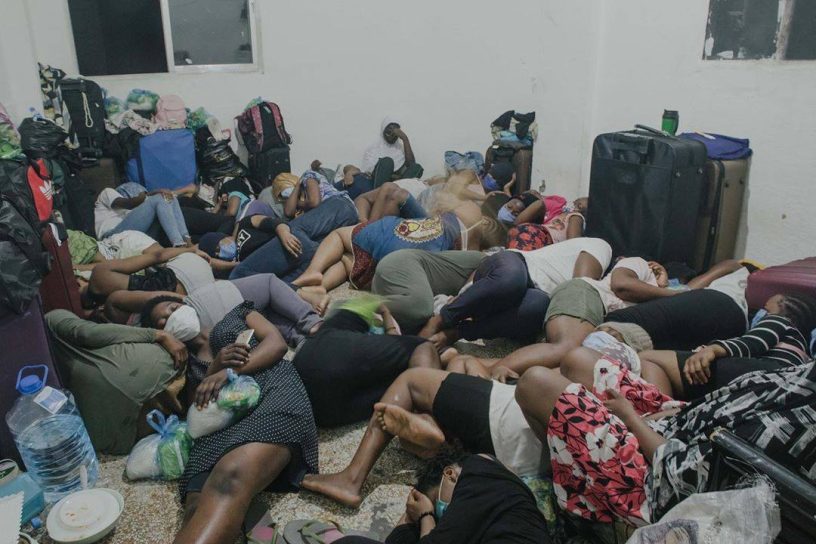 by Alagi Yorro Jallow.
by Alagi Yorro Jallow.
Any plans for the Gambia government help bring our Gambian women subjected to slavery in Lebanon?.
The Kafala system regulates the arrival and stay of migrant domestic workers across the Middle East. According to the International Labour Organisation, an estimated 250,000 migrant domestic workers live in Lebanon. Most are women and arrive from African countries.
Photos of 34 Nigerian domestic workers who have been living in a small room in Lebanon.
The women are among thousands of stranded migrant domestic workers who were kicked out of their employers’ homes amid Lebanon’s economic crisis & who have been pleading their governments to repatriate them.
The women have been victims of the abusive ‘Kafala’ (sponsorship) system, which enables slavery-like conditions. Many have been denied food and healthcare, had their salaries withheld, and their passports confiscated, forced to work 24/7, and suffered physical and sexual abuse.

A recent Amnesty International report “Their Home is My Prison” found that domestic workers in Lebanon face extreme working hours, a lack of rest days, severe restrictions on freedom of movement and communication, food deprivation, verbal and psychological abuse, and physical violence. Some workers have their wages withheld for months or years. Human Rights Watch has also claimed that a domestic worker commits suicide every week.
According to the Amnesty report, all migrants, domestic workers have their residency status in Lebanon tied to the consent of their specific employer under the Kafala contract. They are unable to resign, change jobs, or return home without their employers’ permission. They will often have their passports held by their employers to ensure their inability to leave. They are also excluded from the protections under the Lebanese labor law, such as standardized working hours and minimum wage.
(Photos by alinedeloscampos Aline Deschamps and capturingbeirut on Instagram)




Ma sha Allah great and thanks for sharing